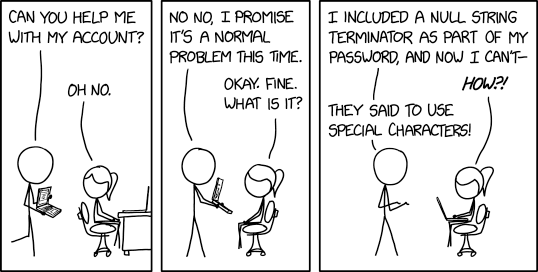this post was submitted on 03 Aug 2023
1160 points (98.8% liked)
Programmer Humor
19946 readers
1241 users here now
Welcome to Programmer Humor!
This is a place where you can post jokes, memes, humor, etc. related to programming!
For sharing awful code theres also Programming Horror.
Rules
- Keep content in english
- No advertisements
- Posts must be related to programming or programmer topics
founded 2 years ago
MODERATORS
you are viewing a single comment's thread
view the rest of the comments
view the rest of the comments

I know, this is easier said than done for someone unfamiliar with this stuff, but maybe still good to know that this is an option in future:
You can prepare a "Linux Live USB" and select in the BIOS that it should boot off of that.
It'll start a complete OS off of that USB, so you can access the hard drive (assuming you didn't enable disk encryption) and at the very least backup your files, or sometimes even resolve whatever keeps you from accessing Windows.
Remember: Those were probably the times of a single computer at home and having a spare laptop somewhere ready for that is not the default.
Those were the times when I had to pull out my hard drive, ride my bike to my best mate's house, and plug it into their PC so I could finish up a report due the next day. All because Windows 95 didn't shut down cleanly and refused to boot.
I did actually remember that, but figured, they must have had some way of reinstalling Windows, too.
I guess, though, they might have had a physical Windows install disk at home. So, yeah, would have had to prepare a Linux Live CD before disaster struck...
CD? Windows 98 first edition was released on floppies. And Linux was not some simple thing. Red hat hadn’t even created yum and Debian hadn’t even created apt.
The late 90’s was a chore of library visits and 14.4k baud XModem transfer interruptions.
This sort of nonsense right here is why infosec people warn about having physical access to machines
It’s not just because of nonsense, it’s more that it doesn’t really matter what you do - the only thing stopping someone with physical access to your machine is their level of determination.
At some point, there’s no stopping the laws of physics. Your data is physically stored there. You can do a lot to make it really difficult to access it, but the best you can do is full disk encryption with a sufficiently strong key, and only store that key on external hardware that isn’t accessible to the attacker.
Even then, you better make sure that your encryption key wasn’t hanging around cached anywhere in memory before you shut down your computer.
You can't really prevent physical access to a machine. Using Bitlocker is a lot better recommendation, because it prevents this kind of attack in most of the cases.
this i do all the time. you can even make a persistance on the drive so its not just like a fresh install every boot. really nice if you wont have access to internet on the host hardware so if you need sometool inparticular you can have it installed already